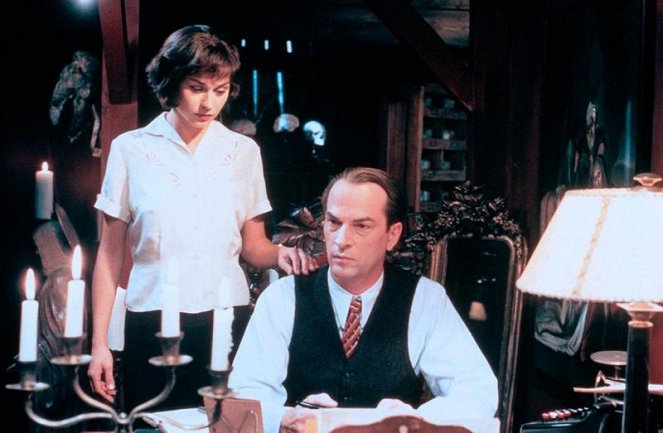Rendező:
Joseph VilsmaierForgatókönyvíró:
Christian PfannenschmidtSzereplők:
Katja Flint, Herbert Knaup, Heino Ferch, Hans-Werner Meyer, Christiane Paul, Suzanne von Borsody, Armin Rohde, Monica Bleibtreu, Cosma Shiva Hagen (több)Tartalmak(1)
1929-ben Marlene Berlinben él férjével és a kislányával. Az addig csak kis szerepeket játszó, jelentéktelen külsejű, enyhén molett színésznőt Josef von Sternberg, a Kék angyal rendezője fedezte fel és indította el a hollywoodi karrier útján. A film sikere választásra készteti a színésznőt a világhír és privát boldogság között. A választás annál is nehezebb, mert Marlene éppen rátalált igaz szerelmére egy német tiszt oldalán, aki nem a megközelíthetetlen, hűvös dívát, hanem a magányos nőt szereti. (Örökmozgó)
(több)Recenziók (1)
At first glance, this is a small German film suitable for HBO. At second glance and upon closer study, it’s the best that contemporary Europe could have gotten out of Maria Riva's book. She wrote a controversial book about her mother, which I personally accepted as a modern Bible for the 20th century and film history. The life of Marie Magdalene Dietrich was in many ways symptomatic of all the great upheavals that the past century has offered its elite. However, the film transcript used the dramaturgical abbreviation for the 1975 retrospective narrative for the key period of 1929 to 1945. Logically, with emphasis on the legendary course of the filming of The Blue Angel and Marlene's work during the war. Dietrich's almost endless line of men and lovers is replaced by "only" the trio of husband, director, and one universal fictional lover. Who is a German, naturally. And how could he not be, since her daughter is played in all three forms from the age of 6 to 13 by the Vilsmaier sisters, the daughters of director Joseph Vilsmaier and Dana Vávrová, who exceptionally did not participate in her husband's film. Thus, knowing the nature of the nationality and the family creative team, I have no real objection. The set design is magnificent, although the use of various details is sloppy (for example, the photo from the film Kismet as a promotion for Morocco is not that great), but this is balanced by the perfect soundtrack combined with Marlene’s actual hits, songs sung by Katja Flint, and instrumental work by Harald Kloser and Thomas Wanker. In the end, this is neither the first nor the last film on the subject, and it will be interesting to see if the Americans finally decide to make their own modern version, where The Blue Angel will logically be suppressed and things like Marlene's American citizenship, the filming of westerns, and the concert tour coming out of her Las Vegas debut will be highlighted. In addition to the endless linking of Marlene to Hitler or Piaf, it will be refreshing to finally associate her with Garbo in 2010.
()

